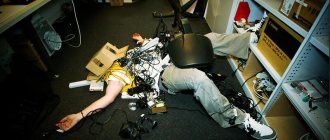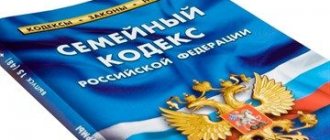24-hour children's hospital
Comfortable rooms without the feeling of a hospital
Our clinic operates a 24-hour children's hospital, which accepts children and adolescents for examination and treatment 24 hours a day.
In the comfortable conditions of the SM-Doctor children's hospital, examinations, diagnostics, therapeutic and surgical treatment, as well as rehabilitation after illnesses and injuries are carried out.
Dear visitors, we inform you that in order to make a decision on the possibility of hospitalization, you must have a PCR test result for SARS-CoV-2 (negative). If there are indications, it is possible to conduct an additional examination (blood test to detect immunoglobulins G and M to SARS-CoV-2).
If the hospitalization of a child involves further joint stay with him in the hospital by an adult (legal / authorized representative), then the accompanying person also undergoes a preliminary examination.
This procedure for hospitalization is necessary to ensure epidemiologically safe medical care and is applied in accordance with the order of the Ministry of Health of the Russian Federation dated May 29, 2020 No. 513 and SP 3.1.3597-20 “Prevention of the new coronavirus infection COVID-19” dated May 22, 2020.
Children are admitted to the children's department and semi-hospital after they have been examined in the outpatient department of the National Center for Health Care and sent for hospitalization on a planned basis with prepared certificates and test results.
If the purpose of contacting the NCPH is hospitalization, then a hospitalization commission is carried out, which is free (as is hospitalization itself) if 1) a referral is provided and 2) an extract from a state psychiatric treatment institution (psychoneurological dispensary, psychiatric hospital) - for residents Moscow and Moscow region ;
from the Ministry of Health of the Russian Federation, from regional health departments (departments) - for non-residents.
The referral is valid for a month.
In the absence of a referral for hospitalization from the above institutions or if the parents wish to enter the NCCH Clinic without the specified referrals from a psychiatrist, or if the parents do not want to contact a psychiatrist for a referral, the child’s stay in a hospital or semi-hospital is paid for (see tariffs).
Young children (up to 4 years of age inclusive) and children whose mental state requires them to stay in the department with their mother are hospitalized under the “mother-child” program . Hospitalization under the “mother-child” program occurs on a first-come, first-served basis, as places become available. The list of children enrolled in this program is kept by the head of the children's department. An adult entering the department together with a child and the child himself must have prepared certificates and test results (lists are issued if the commission makes a positive decision on hospitalization). The preparation of medical certificates begins at the time of expected hospitalization in a hospital or semi-hospital and is discussed with the head of the children's department by telephone.
Documents for admission to the children's department of the Federal State Budgetary Institution Scientific Center for Children's Health:
1. Stool test for worms (valid for 10 days).
2. Scraping for enterobiasis (valid for 10 days).
3. Bowel group (BD) smear (valid for 10 days).
4. Throat and nasal swab for diphtheria (BL) (valid for 10 days).
5. Blood tests for:
—R.W.
—HbsAg
- HCV
— HIV
(valid for 6 months).
6. An extract from the child’s developmental history (allergological history, somatic diseases, past infectious diseases).
7. Certificate of preventive vaccinations. Mantoux reaction (the last one is at least 1 year old; if the result is more than 12 mm, then you must have a certificate from the district TB doctor about the possibility of being in the team).
8. Certificate from a pediatrician about the state of health and the absence of head lice.
9. Certificates of absence of contact with infectious diseases at the place of residence and at school (kindergarten) for the last 21 days (valid for 3 days).
10. Dentist's report.
The forms of analyzes and certificates must bear the seal of the institution that issued them. All documents are submitted to the registry on the day of hospitalization. In the absence of any of the certificates, hospitalization is refused.
Documents for admission to the children's department of the Federal State Budgetary Institution National Center for Children's Health for MOTHERS ("mother-child" program):
1. Stool test for worms (valid for 10 days).
2. Scraping for enterobiasis (valid for 10 days).
3. Bowel group (BD) smear (valid for 10 days).
4. Throat and nasal swab for diphtheria (BL) (valid for 10 days).
5. Blood tests for:
—R.W.
—HbsAg
- HCV
— HIV
(valid for 6 months).
6. Certificate of preventive vaccination against diphtheria (valid for 10 years).
7. Certificate from a dermatovenerologist.
8. Certificate from a gynecologist.
9. Certificate from a therapist about your state of health.
10. Fluorography (the conclusion is valid for 1 year).
11. Certificate of absence of contact with infectious diseases at the place of residence for the last 21 days (valid for 3 days).
The forms of analyzes and certificates must bear the seal of the institution that issued them. All documents are submitted to the registry on the day of hospitalization. In the absence of any of the certificates, hospitalization is refused.
Days and times of hospitalization:
Tuesday, Wednesday: from 9 to 10 o'clock
Thursday: from 9 to 11 o'clock.
If necessary, hospitalization is possible on Friday: from 9 to 11 am.
During hospitalization, the child should not experience symptoms of acute somatic illness (including acute respiratory infections), injuries, etc., which would not allow him to be in a children's psychiatric hospital.
When a child is hospitalized at the NCCH, the presence of the child’s legal representatives (mother and/or father, or guardian) is mandatory.
During hospitalization, the child’s legal representative signs consent for examination and treatment.
In the absence of a legal representative (if the child is hospitalized or the child is accompanied to hospitalization by another person), have consent from the parent (guardian) for hospitalization certified by a notary or in the personnel department of the working parent, or in the Department of Health Protection, or permission from the guardianship and trusteeship authorities.
The examination includes observation and repeated examinations by a psychiatrist, examination by a pediatrician, neurologist, ophthalmologist, psychologist; speech therapist (if necessary). Conducting electrocardiography, electroencephalography; MRI (if necessary). Blood tests - complete blood count, biochemical blood test, and general urine test.
During the stay, consultations are provided with the head of the Department, leading and senior researchers. Treatment consists of psychotherapeutic and pedagogical influence, as well as effective pharmacotherapy aimed at relieving existing psychopathological symptoms.
The child’s legal representatives have the right to be interested in and know the results of examinations, the names and expected effects of medications received by the child, corrections; upon discharge - the final diagnosis, further recommendations for treatment, education and rehabilitation of the child.
For school-age children, during the school year, training sessions are held , including by teachers coming from the State Budgetary Educational Institution of Moscow, in basic subjects, with the provision of a certificate to the school with grades upon discharge (the psychiatric profile of the institution is not indicated). For children of preschool age and primary school age there is a “junior class” with a separate teacher.
For children in the department, regular walks , where children can see their parents or other relatives, visits in the department according to the regime (if the child does not walk due to a mental or physical condition), as well as home leave - on weekends and holidays ( except the first weekend, then depending on the mental state and wishes of the parents).
If the child is taken on home leave not by parents (or guardians), but by other relatives, then they are required to have an officially issued power of attorney for these actions from the parents, as well as a photocopy of the passport.
Separation Mode Questions:
Reception of programs Wednesday from 12.00 to 13.00 Saturday from 11.00 to 13.00
Visits with children Saturday from 11.00 to 13.00 Sunday from 11.00 to 13.00 and daily for walks according to the schedule (12.00 - 13.00; 17.00 - 18.00).
Conversations with a doctor On Wednesdays from 11.30 to 14.00 and by individual agreement with the attending physician.
From 14.00 to 16.00 - children have a nap. Children are allowed to go on home leave after 4:00 p.m. If you need to pick up your child earlier, you must coordinate the time with the attending physician.
Surgical hospital for children 24/7
Within the surgical hospital for children and adolescents, there are several specialized departments in which planned
and
emergency
surgical treatment in the following areas:
- general surgery
- Pediatric ENT surgery (operative otolaryngology)
- Operative urology
- 24-hour surgical care for children
Planned surgeries are performed on a day convenient for the patient using modern minimally invasive techniques.
Rules for visiting patients by relatives
Visits to children by relatives are allowed at strictly allotted times with a pass.
:
- On weekdays from 16:00 to 19:30;
- On weekends and holidays from 11:00 to 14:00, and from 16:00 to 19:30.
A pass to visit patients is issued at the Pass Office upon presentation of an identification document. The time of the visitor's stay is noted on the information sheet by the security officer at the Pass Office. The pass is presented upon request to security personnel, medical personnel, and representatives of the hospital administration.
Visitors must leave their outerwear in the cloakroom and bring a change of shoes.
Visiting children is only possible outside the department's territory. Visits to patients in serious condition in the ward are carried out with the permission of the head of the department. Only two people (the child's caregiver and a visitor) can be in the child's room at a time.
Children under 14 years of age are not allowed to visit patients in the intensive care unit.
In case of violation of the treatment regimen, the requirements of medical personnel and the Rules for visiting patients by relatives, the pass is canceled.
Warn and inform your loved ones and relatives about the visiting procedures and rules of behavior in the hospital.
Therapeutic hospital 24/7 (pediatric department)
In the comfortable conditions of the SM-Doctor children's hospital, a wide range of diagnostic and treatment services are provided for children and adolescents:
conservative treatment
children with various diseases, including:
- diseases of the digestive tract (digestive disorders, gastritis, chronic constipation);
- acute and chronic respiratory diseases (ARVI, bronchitis, pneumonia, laryngitis);
- ENT pathologies (sinusitis, otitis media);
- urinary tract infections (acute and chronic pyelonephritis, cystitis);
- allergic diseases (urticaria, Quincke's edema);
- carrying out IVs and injections
(including those prescribed in other clinics); - rehabilitation of children and adolescents
(during the recovery period after acute illnesses and injuries); - phototherapy
for neonatal jaundice; - medical supervision
(necessary after a series of diagnostic examinations, medical procedures and surgical procedures;) - monitoring children after vaccination
.
In a therapeutic hospital setting, the clinic’s doctors will clarify the diagnosis and characteristics of the child’s condition, conduct the necessary laboratory and functional tests, offer the most adequate types of therapy, including physical therapy, and determine ways for further rehabilitation treatment.
Diagnostic examinations in hospital
In a hospital setting, not only treatment is carried out, but also various diagnostic examinations:
- medical examination 1 day in advance;
- comprehensive examinations (ECG, ECHO-CG, ultrasound, etc.);
- endoscopic examinations (gastroscopy, colonoscopy) under sedation;
- EEG video monitoring (night, day, daily).
The SM-Doctor children's hospital has everything necessary for the treatment and comfortable stay of children, adolescents and accompanying persons.
Advantages of inpatient treatment and diagnostics
- The child is under the supervision of doctors and nursing staff around the clock.
- It is possible to get consultations with pediatricians from a variety of specialties. If necessary, consultations of doctors are held - a meeting of several specialists regarding the choice of treatment tactics.
- The clinic has an express laboratory that will provide the results of a number of tests within a few hours.
- Instrumental diagnostics are carried out using modern high-precision equipment. Here you can perform ultrasound, x-ray, endoscopy, EEG video monitoring, etc.
- Large physiotherapy department.
- In case of illness, parents who are with the child have the opportunity to be examined by an infectious disease specialist, conduct the necessary examinations and prescribe treatment.
More details
A comprehensive medical examination in our clinic will allow you to obtain complete information about the child’s health status and, if necessary, carry out prevention and treatment of identified diseases. Upon completion of the medical examination, we issue an official medical card of the established form for a children's school institution (certificate for school - form No. 026/u).
When preparing a child for first grade, parents should be concerned not only with the purchase of pens and notebooks, but also with the health of their future student.
School for a child is not only new knowledge and new friends, it also means increased physical and psychological stress on the child’s body. Therefore, it is very important that the child approaches his new school life as healthy as possible.
Hospitalization rules for parents caring for a child
Parents who are hospitalized to care for a child must have upon admission:
1 Passport
(with a photocopy of the first page and registration).
2 A copy of the parent’s compulsory health insurance policy. 3 Negative result of stool test for intestinal group - parents with children under 2 years of age!
(valid for 14 days).
4 Fluorography
(fluorography is valid for 1 year).
5 Certificate of absence of contact with infectious diseases at the place of residence for the last 21 days (valid for 3 days). 6 Information about measles vaccination. •
2-time measles vaccination is required; if not, confirmation of the fact of having had measles (with a certificate certified by the signature and stamp of a doctor).
•
In the absence of data on 2 vaccinations or the fact of a previous illness, provide the results of a study of antibody titer (IgG) to the measles virus, obtained 1 month before hospitalization.
•
If you receive a negative or questionable result, you must be vaccinated against measles 2 weeks before hospitalization. 7 Other persons hospitalized to care for a child must have a notarized power of attorney from the parents to accompany the child and to make decisions on examination and treatment, as well as have all the above documents and tests.
Advantages of undergoing medical examination at SM-Doctor:
- You can undergo medical examination in 1 day (the service is available only at the SM-Doctor clinic, Maryina Roshcha metro station).
- You can undergo medical examination in a day hospital in comfortable wards (the service is available only at the SM-Doctor clinic, Maryina Roshcha metro station).
- We perform all analyzes in our own laboratory and guarantee that they are informative.
- Examinations are carried out by qualified doctors with extensive experience.
- Has the child not been vaccinated? You can go through it with us. If you refuse vaccination, we will still issue a medical card with a note about the need for it.
- If the child does not have the Mantoux test, you can have it done with us or at another medical institution. In this case, you will receive a medical card with a note indicating the need to perform a test.
- The medical card can be collected by a relative or another person for whom the appropriate power of attorney has been issued. This is possible provided that during the examination no health problems were identified in the child.
More details
Rights of parents of a sick child
Law
The rights of parents of sick children are covered in the federal law “On the fundamentals of protecting the health of citizens in the Russian Federation.” It will be necessary to study it if any problems arise.
New version of the law Old version of the law
I provided a link to the old version of the law for a reason. The fact is that there was a very good article on Rusmedserv (a proper medical forum), which was then reposted by everyone who could. This article examined the basic rights of parents and commented on them in very clear language. And the only bad thing is that the reference is to articles of the old law that have changed, or that no longer exist at all. Nevertheless, this article is worth reading. There is also a good article on the topic of parental rights.
I would like to draw your attention to the fact that the law is not ideal and there are controversial points in it that contradict the current legislation from a logical point of view, or are simply not entirely clear. The fact is that some points in the law are not regulated by the law itself, but are left to the discretion of hospital administrations. That is, there are also internal orders and decrees that you and I cannot immediately recognize.
I went over the law and wrote down article numbers that might be useful.
The right of parents to be with their child in intensive care
Whatever the lawyer with whom we spoke may say, parents in Russia, unfortunately, do not have the right to stay in intensive care. That is, in the constitution, in the very law on protecting the health of citizens, it is indicated that a parent and a child must stay together, but intensive care, as far as I understand, is equivalent to an operating room, and strangers are not allowed to be there. That is, this is the very point in the law that the hospital itself regulates, and it decides who can be in intensive care and who cannot. And if someone is allowed in somewhere, then this is just the initiative of the attending physician, who simply humanly enters into the position of parents, knowing at the same time that if something happens, he will have problems with his superiors.
And as the deputy chief physician told us, I can sign a statement for you now, but we still won’t let you into the intensive care unit, you can sue us as much as you want, we will always find something to answer to your lawyers. By the way, we were allowed to visit several times a day, but the duration of the visits was short. Then I read different stories of mothers, and I realized that this is the case everywhere, and in order to change this, we need to change the laws. As I understand it, if you start suing under the current law, then most likely it will be a loss, because intensive care units are an area with special sanitary conditions, and it is very easy to find fault with the fact that your clothes are not sterile, and you did not bring a certificate of health .
Here is our application for the right to stay with the child in intensive care, drawn up by a lawyer. If someone wants to fight, you can use it, we didn’t have enough strength, and we didn’t want to bring it to court... But this problem is on democrator.ru, but, unfortunately, everything there is also silent for now.
In other words, you cannot stay with your child in the intensive care unit, but you may be allowed to visit him.
The right of parents to be with a sick child in a hospital
Article 51 part 3, as well as article 80 part 3, paragraph 4. The right to be with a child (under 18 years old) in a hospital is unconditional. The person with the child can be any relative - mother, father, grandmother, grandfather, brother, sister and or other legal representative. A bed in a hospital and food for this person are provided free of charge if the child is under 4 years old, and if older, then depending on medical indications. There is, however, one nuance: the representative may be forced to take some tests.
Parents' right to information
Article 19 part 5 clause 5, article 22, article 70 part 2. You have the right to know complete information about the condition of your child with all diagnoses and tests, and in a language understandable to you. It’s funny, but the doctor should also tell us about our rights.
Parents' right to review documents
Article 22, part 4 and part 5. You have the right to get acquainted with the original medical history and tests, and also, upon written request, receive copies of these documents.
Parents' right to informed consent
Article 20. The doctor must obtain your consent when performing medical interventions, and he must tell not only the advantages, but also all the side effects associated with this intervention.
Parents' right to refuse medical intervention
Article 19 part 5 clause 8, article 20.
Parents' right to choose a doctor
Article 19, part 5, paragraph 1, article 21. I don’t quite understand how this right can be exercised in a hospital, but the fact that you can invite your doctor from outside the hospital to examine the patient and consult, that’s for sure, we have been offered more than once.
The right to admit a lawyer to the clinic
Article 19 part 5 clause 10.
The right to allow a priest to see a sick person
Article 19 part 5 clause 11.
PS I'm not a lawyer and I may be wrong about something, correct me if you can. PSS I would like the article to help other parents defend their rights at least a little. Therefore, I ask for shares and likes.
How we save on supplements and vitamins
Vitamins, probiotics, gluten-free flour, cosmetics, sports nutrition, we order on iHerb.com (use the link for a $5 discount). Delivery to Moscow is only 1-2 weeks. Much is several times cheaper than buying it in a Russian store.
Get $5 discount →
Approximately every second child under the age of 15 has had to be hospitalized at least once. And many parents in this situation are lost, not knowing how to behave. Is it possible to constantly be with the child or do you need to completely trust what the medical staff offers and insists on? Where are we talking about rights, and where about arbitrariness?
Children under three years of age must stay in hospital with their mother
About twenty years ago, and not only in our country, but also in other countries, parents did not have the right to be near their child in the hospital. Fortunately, many doctors and psychologists have found that the presence of parents has a beneficial effect on the course of treatment. After all, the child does not feel cut off from the family and is less worried and worried. Now even official documents do not prohibit, but even recommend that parents stay with their child during the entire hospitalization.
For example, in the code of laws of our country there are “Fundamentals of legislation of the Russian Federation on the protection of the health of citizens,” which were adopted in 1993, and Article 22 clearly states that any of the child’s relatives is allowed to stay with him in the hospital at all times his stay there. The age of the child in this case does not matter. In addition, it is clearly stated that children under three years of age must be in hospital with their mother. Parents who are in the care unit for children under three years of age are provided with meals. Some hospitals have kitchens where you can heat food and refrigerators for storing food. In addition, the clinic may have a canteen or buffet, small shops selling food, personal hygiene items, and pharmacies. At the end of the treatment period, the person who is with the child is issued a certificate of incapacity for work (sick leave) and benefits are paid.
Health workers are trying to improve the situation
Unfortunately, it is not possible for parents to stay in the hospital with their child in all cases. Very often this is prevented by a simple lack of necessary conditions. Today, only commercial, private clinics or departments and rare public hospitals are able to provide them. Medical workers are trying to improve the situation; in some hospitals, mothers are allowed to be present in the department from eight in the morning to eight in the evening. Although the ideal option is to stay with the child around the clock.
In such cases, to visit the child in the hospital, parents are issued a temporary pass, which allows them to enter the department. However, the current law states that you can remain in the hospital with your child, so do not be afraid to defend this if necessary. If a doctor denies you permission to stay with your child, contact the head of the department, and even the head physician of the hospital, to assert your rights. If you encounter opposition at this level, then call the insurance company (its number is always indicated on the policy card), the Compulsory Medical Insurance Fund, the Department of Health, where there are special departments for protecting the rights of the insured. Don’t be lazy to write a complaint separately to the prosecutor’s office, separately to the insurance company, separately addressed to the head of the medical institution, listing all violations and demanding that you be informed in writing about the measures taken. Be sure to highlight the request “Do not send the document for a response to the institution interested in concealing violations,” i.e., the hospital where your child is located.
But there are exceptions to the rules
They may include cases when your child is in the intensive care unit (in this case, the time and duration of visits is determined by the head physician of the hospital), as well as in the infectious diseases department, where access for parents will be reasonably limited.
It is important to know and understand your rights and responsibilities when you are in the hospital with your child. Parents must take into account the comments of the medical staff, be polite and courteous, follow the rules on the sanitary and epidemiological regime and the work of the hospital, but this does not mean at all that this includes “washing the floors” in the ward and other things to “please” the medical staff .
You also have the right to receive complete information. Don't be afraid to ask your doctors questions. Find out in detail what procedures and medications are prescribed for your child. Don't be afraid to ask again if you don't understand the explanation or hear unfamiliar terms. Ask your doctor to explain to you the results of each test or examination. Do not hesitate to check with the nurse each time what kind of medicine is and in what dose she is bringing your child.
Also know that according to existing legislation, the doctor needs the consent of the parents for medical intervention in the child’s health. It is not required only if there is a real danger to the child’s life, for example, an accident occurred and he was seriously injured. In this case, he is hospitalized in a hospital to provide urgent specialized care. But in the case of planned hospitalization before the child turns 15, only the parents make decisions for him.








